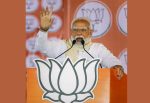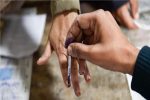
Travellers from Dubai, UK contributed maximum COVID-19 importations into India: IIT study
PTI, Sep 27, 2020, 1:05 PM IST

New Delhi: Travellers from Dubai and the UK were primary sources of COVID-19 importations into India, according to an analytical study done by the Indian Institute of Technology (IIT), Mandi.
According to the research, which has been published in the Journal of Travel Medicine, COVID-19 got induced into the Indian States mainly due to international travels.
The study has also found that infected cases from Tamil Nadu, Delhi and Andhra Pradesh played less role in spreading the disease outside their communities. Whereas infected people in Gujarat, Rajasthan, Maharashtra, Kerala, Jammu and Kashmir, and Karnataka played a significant role in the local transmission, and some of them caused interstate transfer too.
“We tracked the spread of COVID-19 and its diffusion from the global to national level and identified a few superspreaders who played a central role in the transmission of the disease in India. The COVID-19 spread in phase one was traced using the travelling history of the patients, and it was found that most of the transmissions were local,” Sarita Azad, Assistant Professor, IIT Mandi, said.
“The research team has used the travel history of infected patients from January to April as the primary data source and a social network was created depicting the spread in the early phase of the pandemic. The research found that the maximum numbers of connections were established from Dubai (144) and the UK ( 64),” she added.
Azad explained that statistical metrics calculated from the data revealed that Dubai and the UK played a crucial role in spreading the disease in Indian states and were the primary sources of COVID-19 importations into India.
“Dubai’s eigenvector centrality was the highest that made it the most influential node. The statistical metrics calculated from the data revealed that Dubai and the UK played a crucial role in spreading the disease in the Indian States and were the primary sources of COVID-19 importations into India. Based on the modularity class, different clusters were shown to form across Indian states, which demonstrated the formation of a multi-layered social network structure. A significant increase in confirmed cases was reported in states like Tamil Nadu, Delhi and Andhra Pradesh during the first phase of the nationwide lockdown, which spanned from March 25 to April 14,” she said.
“The modularity class of states such as Tamil Nadu, Delhi, and Andhra Pradesh was low. Hence, it is likely that infected cases from these states played less of a role in spreading the disease outside their communities. Whereas states like Gujarat, Rajasthan, Maharashtra, Kerala, Jammu and Kashmir, and Karnataka played a significant role in the local transmission, and some of them caused interstate transfer too,” she added.
Azad, who conducted the analytical study, along with her student Sushma Devi, said, “When a pandemic like COVID-19 subsides, a good research work serves as a record for the future. In this work, we have used real-time data and demonstrated how the disease got diffused from the global to the national level from January 30 to April 6. This will be an important contribution to understanding the disease transmission in India during the early phase of the pandemic.”
India’s COVID-19 caseload neared 60 lakh with 88,600 fresh infections being reported on Sunday, while the number of people having recuperated from the disease crossed 49 lakh pushing the national recovery rate to 82.46 per cent, according to the Union Health Ministry.
The total coronavirus cases mounted to 59,92,532, while the death toll climbed to 94,503 with 1,124 people succumbing to the disease in a span of 24 hours, data updated at 8 am showed.
Udayavani is now on Telegram. Click here to join our channel and stay updated with the latest news.
Top News
Related Articles More

Congress to discuss candidates for Amethi, Raebareli seats on Saturday

Cache of arms including foreign-made revolvers seized by CBI in Sandeshkhali raids

24 Indian Fishermen Released from Sri Lankan Detention, Repatriated to India

SC verdict on EVM tight slap to Congress-led opposition: PM Modi in Bihar rallies

Board exams twice a year from 2025: MoE asks CBSE to work out logistics, no plan for semesters
MUST WATCH
Latest Additions

Patanjali Foods to evaluate proposal to buy Patanjali Ayurved’s non-food business

Congress to discuss candidates for Amethi, Raebareli seats on Saturday

BJP’s CT Ravi Booked for Promoting Hatred and Enmity Through Social Media Post

Elections held in 14 LS segments in Karnataka, voter turnout nearly 64 per cent till 5 pm

‘PM is scared, may even shed tears on stage’: Rahul Gandhi’s fresh salvo at Modi
























